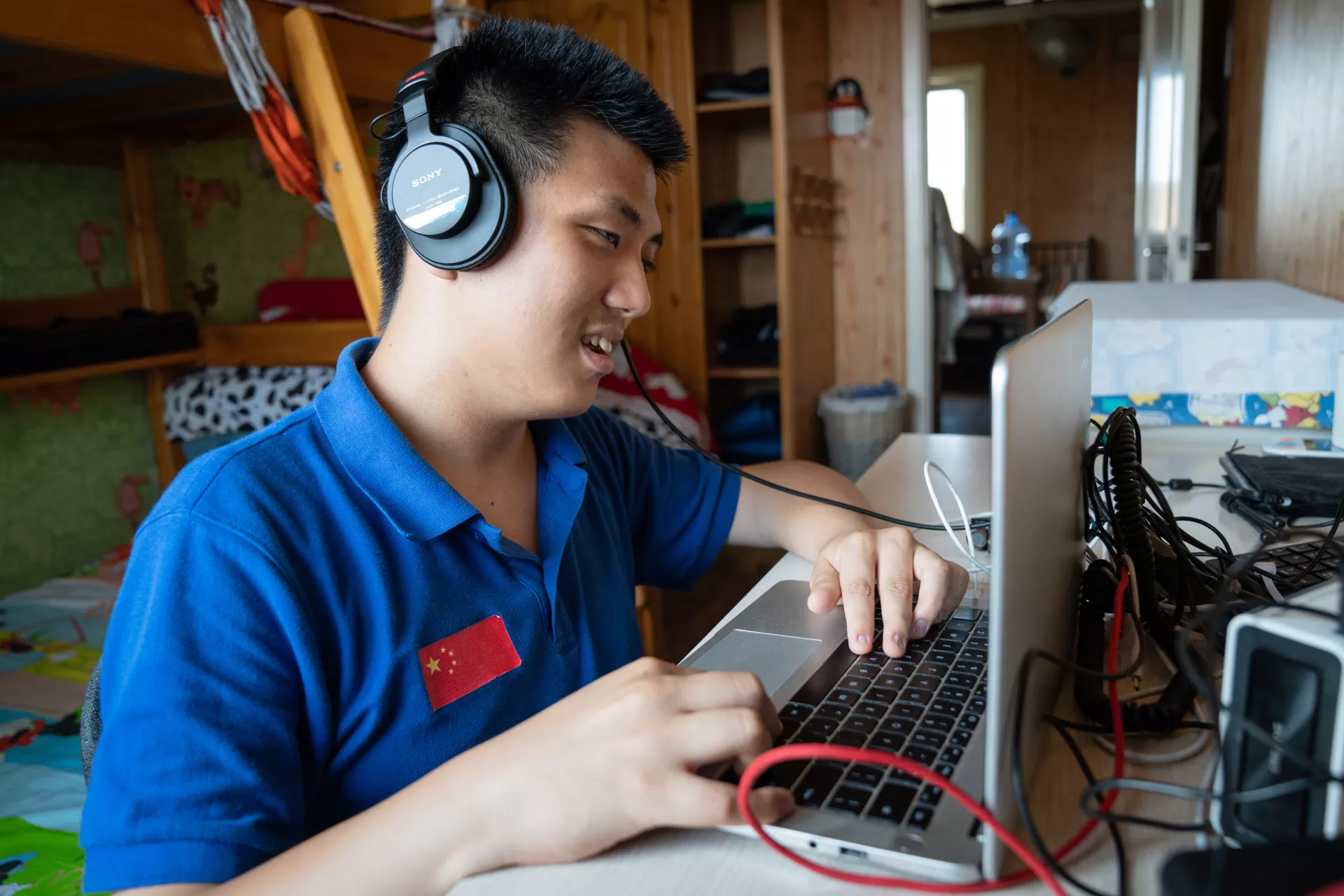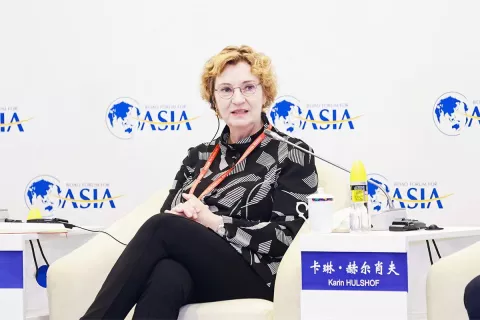A more inclusive digital environment is what I hope for
Instead of being determined by digital technology, we hope to use digital technology to empower each other with limitless possibilities.

- Available in:
- 中文
- English
As a first-generation digital native and visually impaired person, my life, like everyone else's, is dependent on the world constructed by digital technology - perhaps even more so.
With the widespread use of social media, the content we receive is becoming more and more atomized and fragmented, and information overload and bias are issues that need urgent attention today. People with disabilities are thinking and trying to creatively solve these problems just like everyone else, so we need a more accessible, cross-disability, and inclusive environment of digital collaboration to provide a platform for innovations of aspiring people with disabilities.
Disability in itself allows us a richer perspective in thinking, and sometimes, for certain types of information, a different sensory experience can be more direct, or deeper.
I was unable to return home due to international travel restrictions caused by the pandemic, but during the most homesick time, I took an “intercontinental flight” with my friend back to my hometown in a auditory virtual flight simulation game. The game was developed and maintained entirely by visually impaired aviation enthusiasts, and as my friend began to play the tunes from my childhood before touchdown, I realized that the emotional and social value that people with disabilities can create is not confined at what society has prejudiced as a group in need of help and pity. Rather, people with disabilities can and should be involved in the more innovative aspects of value production providing truly creative solutions. The prerequisite is a digital production and education environment that is friendly enough for people with disabilities.
The reality, however, is that our digital technology environment for production and collaboration is not yet inclusive enough. There have been times when I was so frustrated when I felt trapped by second-hand information, and the backlash of misunderstanding and misrepresentations that comes with it, yet I couldn't find the real source of information because of the lack of accessibility of source platforms; when I was working on cross-border digital collaboration, yet I couldn't find a universal tool for everybody due to accessibility issues; when I tried so hard, but yet couldn't find an affordable collaboration gear that is friendly to those who are visually impaired and does not require a technical background. The internet seems to be torn into silos and information cocoons, and the possibility of facilitating us to step out of our comfort zones and listen to new ideas seems to be blocked.
If we want to break out of the Cyber silos and cocoons, we need to reflect more on ourselves. We need to talk about the kinds of things we hope to achieve with technology and the Internet. For sure we hope to use digital technology in a positive way, and with a purpose and a direction, and we also hope that we will be able to pull away whenever we need to. Because we know that the purpose of people who are behind digital technology, and the reason that digital technology was created in the first place, was to connect us with our experiences, our joys and sorrows, in a more effective, flexible and safe environment. Therefore, we need to understand the mechanisms behind digital technology, and take better control of digital technology. This cannot be achieved without the openness and inclusiveness of our digital environment.
All of this is based on the assumption that we have equitable rights to access digital technology. We need better accessibility in a specialized digital environment where people with disabilities and the rest of the public will have the opportunity to break out of their ‘bubbles’, and engage in a deeper level of communications.
There was a time when collaborative documents were used to post requests for help, and it was a great example of how real and warm interpersonal interactions can be made possible between those who really need help and those who can provide it. It demonstrated the tremendous good the Internet can do in our daily lives.
However, due to some of the accessibility issues, people with disabilities had been excluded, and this segment of voices was buried in the clutter of information. Many posts with requests for help or channels of assistance could not be accessed by screen reader, and an online cross-disability organization which I worked with reviewed and converted those images into accessible text, and reposted the information. Actually, the republishing process itself showed some accessibility issues, because one of the platform we used didn't have screen-reader-friendly back-end management interfaces.
These issues should not have existed. People with disabilities are part of the public, yet they are being denied the same right to collaborate using digital technology. If specialized digital environments are not accessible, it is more difficult for people with disabilities to contribute to and to push forward the innovations and progress of society.
If it weren't for the needs of people with speech or hearing impairments for communication, synthetic speech might not be so natural and efficient, and smart speakers might not be as intelligent or easy to use. If it weren't for the special way in which people with synesthesia perceive the world, we wouldn't enjoy the artistic vitality and wild imagination of these intriguing observations. Without the participation of people with visual impairments, the audiobook and audio-theatric industries would be less colorful, and many of us might miss out on the charm of ‘listening to books’. The diversity of mankind has propelled us to where we are today, and it has allowed us to be more adaptable to different environments, giving us hope to live on and the courage to break away from ‘digital sugar’ and ‘information cocoons’. The contribution of diversity to humanity will only become more evident and significant. This topic about diversity is more time-honored and timeless than digital technology itself, and it will always be a topic of discussion among human beings.
So we want to learn how to better leverage the advantages of digital technology, we want to be that group of change agents, and we want to say this: what is much more important than accessibility in the entertainment world and social media, is better accessibility and inclusiveness for collaboration in the specialized digital environment for people with disabilities.
This environment needs to be accessible to everyone, despite the types of disabilities. It should include all people so that they can think proactively and have their voice be heard, which they have control over, to speak less fragmented, more complete messages. Instead of being determined by digital technology, we hope to use digital technology to empower each other with limitless possibilities. Because everyone has the right to make a change and to explore new areas.


